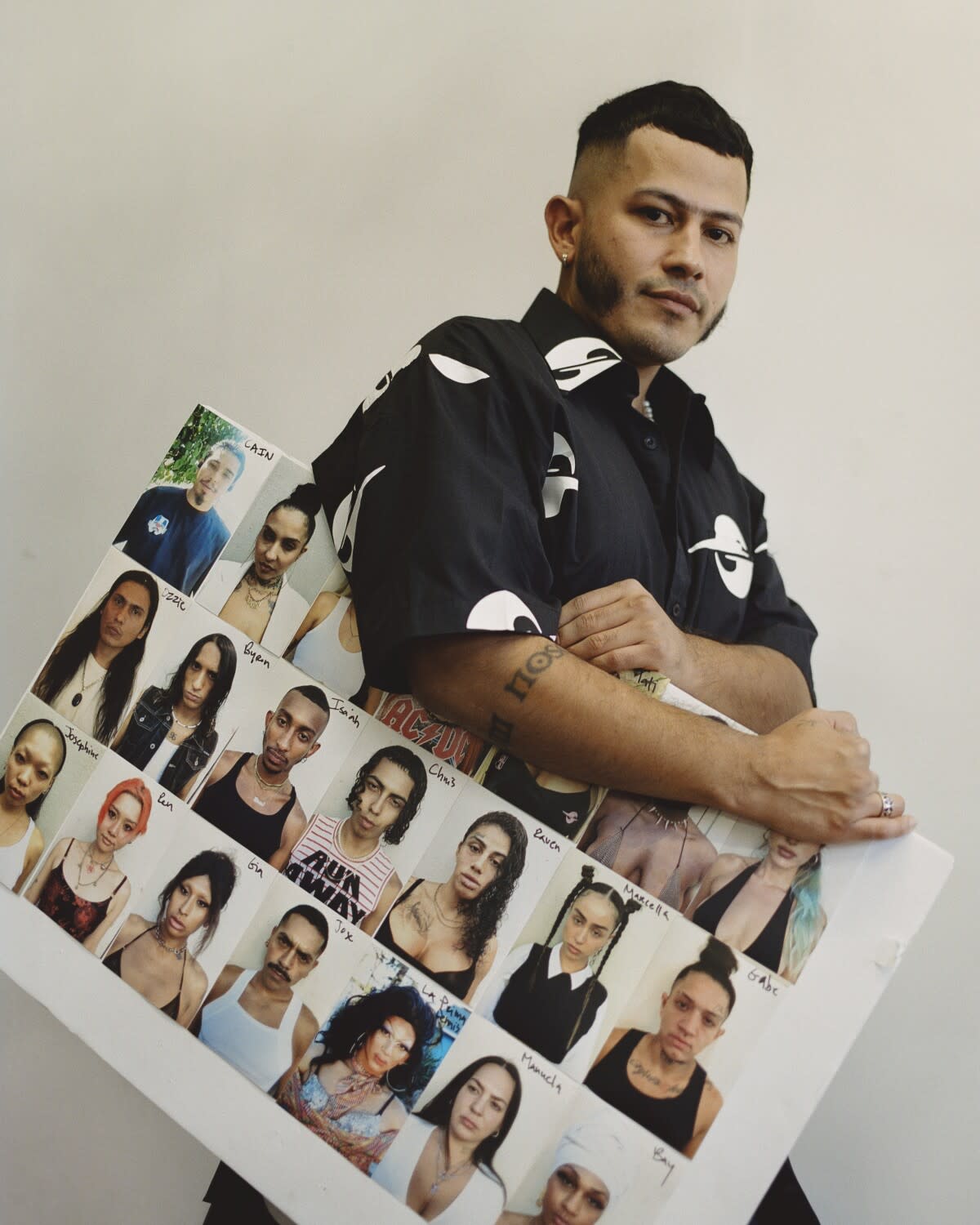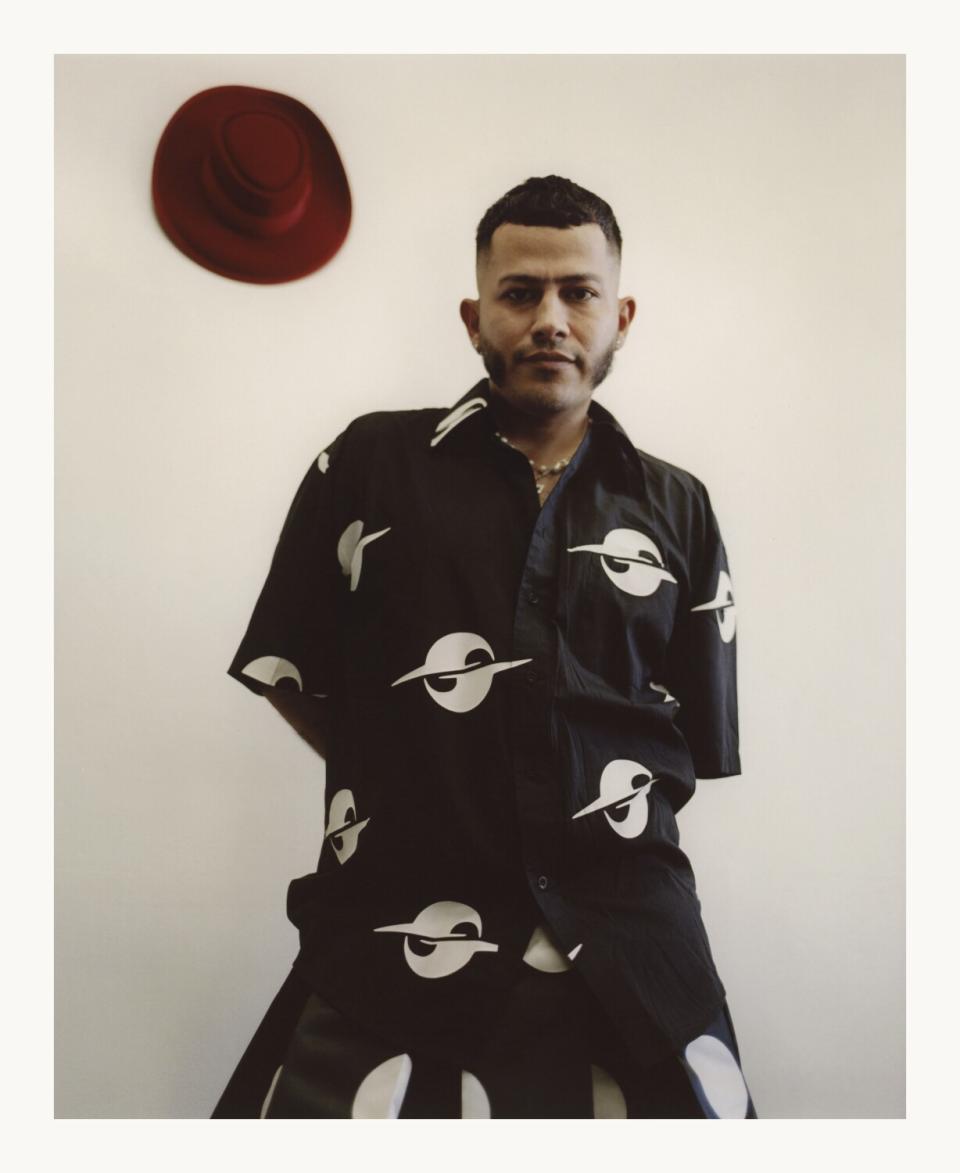In the L.A. of my dreams we will think of sustainability in everything that we do

This story is part of Image issue 7, “Survival,” a collective vision for the L.A. of our dreams. See the full package here.
Dear L.A.,
I remember the first time I spoke Spanish to a Korean person.
I am the oldest of my siblings, and I'm the only one who speaks fluent Spanish — the rest of them are like, no sabo kids. One time in Koreatown as a kid, I had just come back from a summer in Mexico and I was trying to, like, flex my Spanish. I went into a store to buy something and I pretended I didn't speak English. The guy started speaking to me in perfect Spanish, being like, “Bueno, dímelo, qué es lo que quieres? Qué necesitas?” Like, totally flawless Spanish. Whenever I think of Koreatown, that memory always comes back.

It was very much the intersectionality of L.A., the multicultural melting pot that it is. I always try to make that present in all of our shows and our campaigns and all of my work so that people know we're not just for one type of person or one race or one body type. And I think that as far as sustainability, you’re definitely far and beyond any other city I've been to in the United States.
There's a thread of you that carries forward in my work, especially in my latest collection and show. I use a lot of lowrider T-shirts and graphics that I saw growing up, repurposed into different types of clothing. I wanted to focus on something for my communities, and new types of Chicanismo and Latinidad.
In 2018, we happened to go see the lowrider exhibit at the Petersen Automotive Museum. I fell in love with one of the cars called the Gypsy Rose. It was in a car museum, but I thought that was fine art. I immediately started thinking my next collection was going to be inspired by lowriders.
I couldn't tell the entire story of your background and your present and your future in one show. This was just a taste of what I'm focusing on moving forward because I'm still really interested in sustainability and diversity and inclusion. But you — my hometown — have helped really focus on what I want to say.
A big thing for me and my family growing up here was hand-me-downs. Taking my older cousins' clothes or shoes. Now that I've worked in fashion and I understand the impact of production, I realized that hand-me-downs are a very sustainable way of life that gets overlooked because it's not really like proactively being green. But it's extending the lifetime of garments.

There are lots of ways that I practice sustainability with Gypsy Sport. We started sourcing locally, cutting our packaging on our online store, saving all of our scraps and minimizing our travel. But in the bigger picture, I definitely feel like just being a good person, picking up litter on the street, helping people that you see are struggling — just being a little more helpful to the people around you — is a super huge way to keep you sustainable.
You, the city, made me think of sustainability in every sense. In early-’90s L.A., I remember getting a lot of Looney Tunes oversized T-shirts — whenever we talk about throwback T-shirts, that was always one — and baggy pants that I had to belt up. Mostly sporty stuff. A mix of swap meet finds with department stores.

I think your fashion is definitely slept on. In the early 2000s up until now, you’ve become a very respected hub for streetwear and vintage. And I think that those are both integral elements of Gypsy Sport. It's high-end streetwear mixed with vintage and repurposed.
All of those things come through sustainability. And authentic DIY is something that undeniably you can claim and be proud of. I think the reason the industry doesn't give a lot of respect to those things is because it doesn't serve capitalism. But we — your people — are comfortable not being super-robotic, overworked consumers.
L.A., I’ve missed you. And I’m glad to be back together again.
XOXO,
Rio
Rio Uribe is the creative director of Gypsy Sport.
More letters
This story originally appeared in Los Angeles Times.

